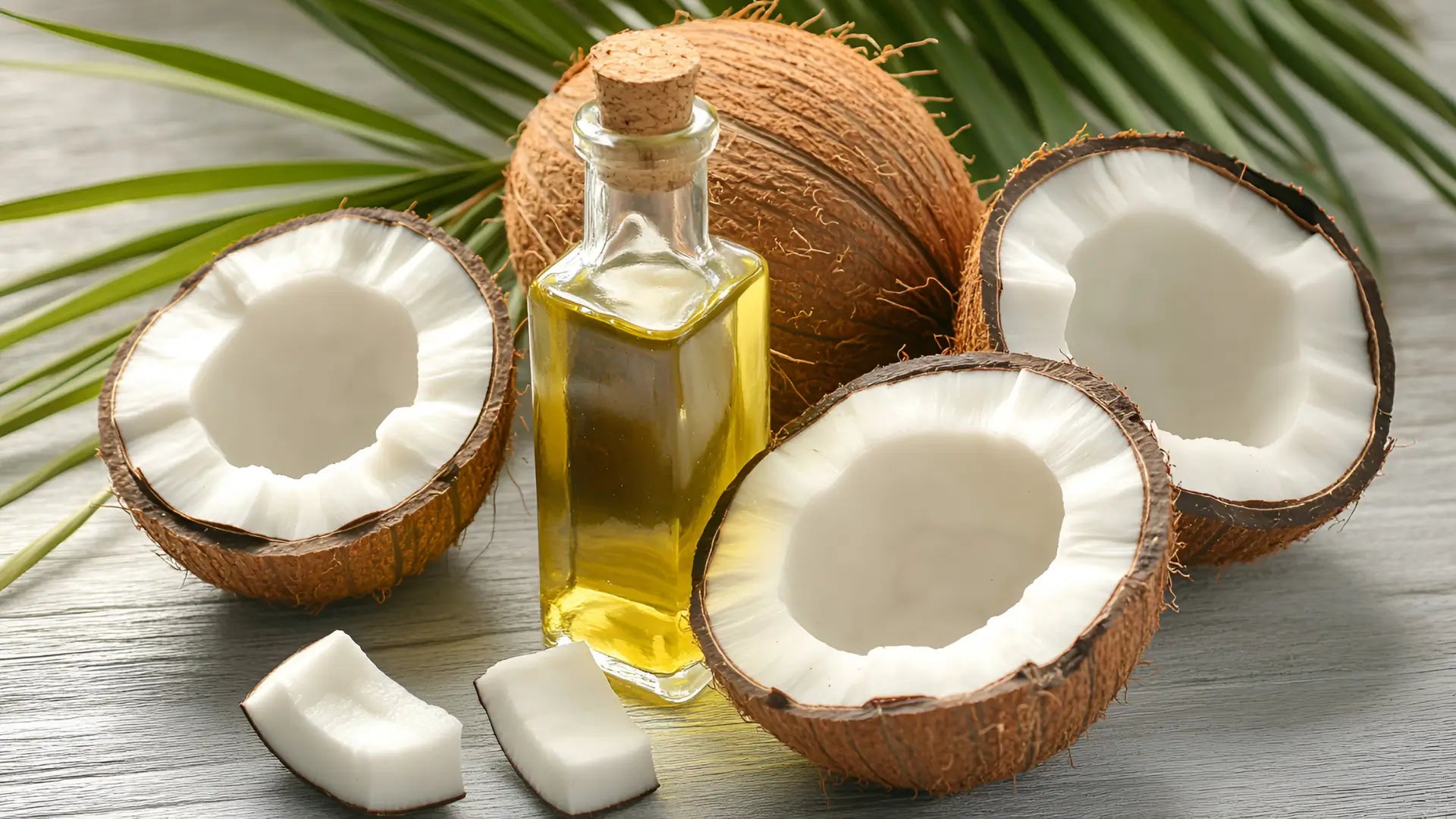How to Choose the Best Coconut Oil: A Comprehensive Guide
Why Coconut Oil is a Superfood
- Overview of coconut oil’s unique nutritional profile.
- Highlight benefits: rich in MCTs, antioxidants, and antibacterial properties.
- Brief mention of its multi-use nature: cooking, skincare, and health.
Key Benefits of Coconut Oil
-
Supports Weight Management
- Role of MCTs in boosting metabolism.
- Evidence-based studies on fat burning and satiety.
-
Enhances Oral Hygiene
- Explanation of oil pulling and its effects on bad breath and gum health.
-
Brain Health and Cognitive Support
- Connection between MCTs and improved cognitive function.
-
Skincare and Haircare Hero
- Hydration, wound healing, and scalp benefits.
-
Boosts Immunity and Fights Infections
- Role of lauric acid in combating pathogens.
Understanding the Different Types of Coconut Oil
-
Refined Coconut Oil
- Processing methods and impact on nutrition.
- Pros and cons for cooking.
-
Unrefined Coconut Oil
- Virgin vs. extra virgin: Are there differences?
- Cold-pressed vs. wood-pressed extraction techniques.
- Why unrefined oils retain more nutrients.
-
Fractionated Coconut Oil
- What makes it different (liquid state, targeted benefits).
- Ideal uses: massage oil, skincare.
-
Hydrogenated Coconut Oil
- Explanation of trans fats and why to avoid this type.
How to Read Coconut Oil Labels Like a Pro
- Decoding terms: “organic,” “virgin,” “cold-pressed,” “pure.”
- How to identify high-quality oil from misleading claims.
- Certifications to look for (USDA Organic, Fair Trade).
Choosing the Best Coconut Oil for Your Needs
-
For Cooking
- Comparing smoke points: refined vs. unrefined.
- Best options for frying, baking, and sautéing.
-
For Skincare and Haircare
- Benefits of pure, unrefined oils for beauty routines.

-
For Therapeutic Uses
- Choosing oils for oil pulling, massages, or aromatherapy.
Packaging and Storage Tips
- Importance of glass jars over plastic containers.
- Storing coconut oil to extend shelf life and retain quality.
Innovative Uses of Coconut Oil
- Unique applications such as DIY recipes for beauty products.
- Tips for integrating coconut oil into your diet (e.g., smoothies, coffee).
Coconut Oil Myths and Facts
- Debunking common misconceptions (e.g., “All coconut oils are the same”).
- Science-backed truths about its health impacts.
How Coconut Oil Stacks Up Against Other Oils
- Comparing coconut oil to olive oil, avocado oil, and ghee.
- Pros and cons for various culinary and health applications.
Conclusion
- Reiterating the importance of selecting the right type of coconut oil for optimal benefits.
- Encouraging readers to make mindful purchases.
FAQs
-
What is the healthiest way to use coconut oil daily?
Answer: Consuming 1-2 tablespoons of virgin coconut oil in cooking or beverages can boost energy and immunity. -
Is refined coconut oil bad for you?
Answer: Refined coconut oil lacks the nutrients found in unrefined options but is suitable for high-heat cooking. -
How do I know if coconut oil is pure?
Answer: Look for “unrefined,” “virgin,” and USDA Organic labels. Also, ensure no added chemicals or fragrances. -
Can I use coconut oil for weight loss?
Answer: Yes, the MCTs in coconut oil can help with fat metabolism and appetite control. -
What makes virgin coconut oil different from regular coconut oil?
Answer: Virgin coconut oil is unrefined and retains more antioxidants and nutrients, unlike processed regular oil.



Share:
Nature’s Superfood - Health Benefits of Raw Unpasteurized Honey
Difference Between Vanaspati Ghee and Desi Ghee